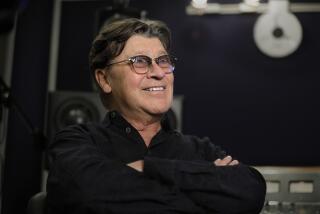The Song of silence
Watching the events of Sept. 11 unfold, we heard over and over again that there were no words to describe the enormity, the horror of what we had witnessed. Yet did talking cease for even an instant on any television network?
Then came a new appreciation for classical music, as it was thrust into service to do what words could not: express overflowing emotions, console and hearten.
But before putting our trust in music, we have first needed a moment of no music, a moment of communal silence, however awkwardly observed.
We are compelled toward silence in the wake of tragedy but fear it at the same time. We crave it for reflection, when nothing more can be said or taken in. Yet we are so inured to the cacophony of modern life that silence is associated with the absence of assurance. At performances everywhere, we have been lucky to be allowed 30 seconds.
Because of this ambivalence, our attempts at silent moments (or fractions thereof) in the concert hall have been uncomfortable. We stand. But then what? Do we bow our heads in silent prayer? Is a moment empty of sound an aural representation of the newly empty space in the Manhattan skyline, and thus something we desperately want to fill? Musicians have excellent timing, and when a conductor cuts the minute of silence short, it is surely the sign of a musician sensing unease in the theater.
Silence, however, can be the greatest comforter of all--because it doesn’t exist. And once we discover this, as the American avant-garde composer John Cage tried to get us to do in 1952, silence becomes an ideal vehicle to bring us closer together, and closer to music.
Cage wanted to make an extreme statement about music, and he conceived a work called “4’33”.” Written for any instrument or instruments, it has three movements, and each movement has a single instruction: tacet, “be silent” in Latin. The audience watches a piano virtuoso, say, open the keyboard, start a stopwatch, sit motionless, then close the keyboard when four minutes and 33 seconds are up. The work caused a furor at its premiere, and the debate about its worth has never ended.
I have listened through countless performances of “4’33” “ and never had a bad experience. The point of Cage’s command for silence is that it is impossible to escape sound. Enter an anechoic chamber, where you are acoustically sealed away from the noise of the environment, and you will hear, with alarming vividness, the sounds of your own body. When he visited such a chamber at Harvard University, Cage said that he heard a high pitch and a low one, the sounds of his nervous system in operation and his blood in circulation.
Sitting silent in a concert hall, we don’t stop listening--indeed, we listen harder; we hear rustling and tittering, coughs and laughter, and, if we are lucky, we notice something interesting wafting in from outside, all signs of life. Throughout a typical performance of “4’33”,” a change occurs in the audience. At first nervous and self-conscious, those in the audience finally settle down and, as they listen, ease replaces unease, “nothing” turns to a shared “something.” With ears newly perked up, hearing the next piece on the program is invariably a happy occasion.
The media is obsessed with reminding us that our world will be permanently changed as a result of Sept. 11. For now, at least, we do think differently, act differently, proceed with more serious purpose. Gravitas is in; fluff is out. In my small corner of the art world, it has been a time for grand requiems, not operetta--and those moments of silence.
But no one knows what real change will occur, its kind or scale. Already the moment of silence is fading, as if it were no longer needed. We are urged to press forward, hop on a plane, buy something.
But fear, uncertainty and the sense of loss haven’t just left scars, they are still active forces. And thus those moments of silence, those reminders to pay attention to all the small signs of life around us, have become more important than ever. Silence keeps us alert; it makes us vigilant. That is one permanent change that we can all agree is necessary.
More to Read
The biggest entertainment stories
Get our big stories about Hollywood, film, television, music, arts, culture and more right in your inbox as soon as they publish.
You may occasionally receive promotional content from the Los Angeles Times.











